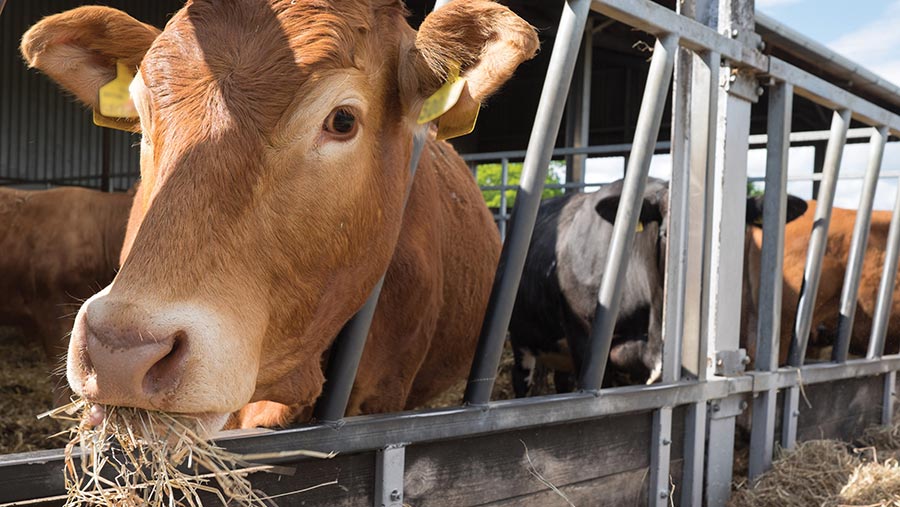Time to ‘draw a line under’ Limousin scandals, says society chief
 © Tim Scrivener
© Tim Scrivener For five years, the British Limousin Cattle Society has been operating under a cloud of suspicion, following two major scandals that led to questions about the integrity of the herdbook.
The first involved well-known bull Ballinloan Jaegerbomb, whose parentage and age were both disputed, leaving owners of his progeny thousands of pounds out of pocket when his pedigree status was withdrawn.
A second row involving French bull Jacot, whose semen was illegally harvested and imported to the UK without the correct paperwork, led to an official Defra review.
See also: Limousin Society suspends breeder amid semen import inquiry
But speaking exclusively to Farmers Weekly, chief executive Alice Swift suggests the time is now right to move on.
“We’ve had a challenging few years, but what I sense, and I’ve prioritised time with members at sales and AGM club meetings, is they want to move forward,” she says.
“They recognise they’ve had a tough past, but they want to look forward. They’re here because of their cattle and the cattle speak for themselves.
“Things have gone on over the past few years, but now they want to draw a line under it and move forward.”
Though the allegations of wrongdoing surrounding Ballinloan Jaegerbomb are historical, there is a possibility that the society could face court action in future, with some commentators claiming damages to the affected parties could be worth millions.
But Ms Swift is keen to point out the society itself is not facing any charges, adding: “We know it’s an ongoing investigation, so we can’t comment. When it reaches a point where we can comment, we will.
“As it stands today, we’re helping and supporting the investigation, but at the moment it’s all assumption.”
Changes
Following the scandals, the society has made a number of changes to its bye-laws to protect its reputation.
One such change is around the rules on birth notification, with pedigree calves now required to be notified within the first 28 days of life, allowing for future weight inspections.
According to Ms Swift, this approach is already bearing fruit, with members saying junior bulls at sales are now the size they should be.
In December, a new data platform is also due to go live which will help the society spot any anomalies with the herdbook.
Last year, the council agreed to spend more than £200,000 developing the database, which Ms Swift claims is the “most sophisticated in the industry”.
“We’re moving from a legacy system to modern software,” she says.
“We are linking up algorithms to help us spot outliers and having a direct feed to the British Cattle Movement Service [BCMS].
“We can run a daily report which tells us if there are any anomalies with what’s been registered with BCMS and what’s been registered with us.
“It gives us a much more accurate way of managing the integrity of the herdbook.”
These changes have meant membership numbers, after a fall of about 30, are now back into positive growth, standing at 2,346, and the society is pushing to recruit the next generation, working with Moulton College, in Northamptonshire, to establish young breeder initiatives.
Rumours
Ms Swift is also keen to quash persistent rumours about the status of the group’s headquarters at Concord House, Leamington Spa, which had been described as a “white elephant”, but which as of this year generates a profit.
This has been done by taking on five tenants and letting out the ground floor as a conference centre.
All of this reform, together with future plans to learn from the French Limousin system and win back buyers who switched to native breeds, leave Ms Swift confident about the future of the society.
“We have to go back to basics,” she says.
“We need to build trust and relationships to show Limousins are easy calving, they have got a good temperament and a good age at slaughter. There’s a bright future.”
